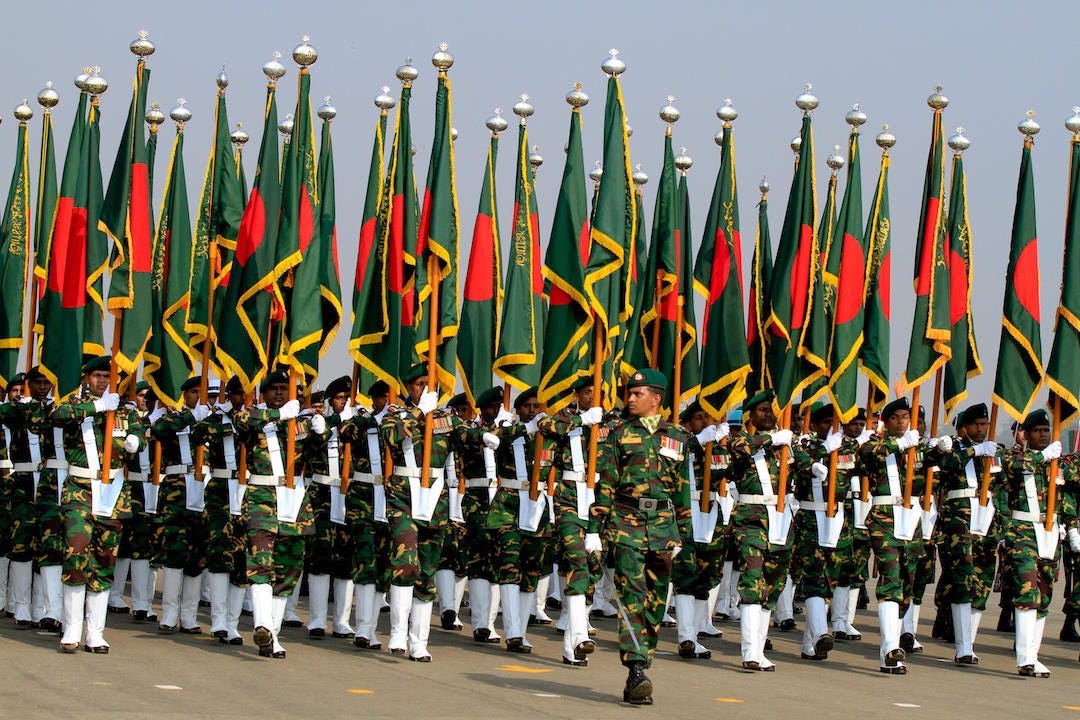
On August 16, 2015, The Daily Star and Prothom Alo published a news article on the killing by the army of five people in the Chittagong Hill Tracks. The Daily Star article was titled “Gunfight in Hills: Five killed by army” and stated that: “Five indigenous youths were killed in a gunfight with army at Baghaichhari of Rangamati early yesterday.”
The army were angry, not because there was a report that the army had killed five men, but because the article used the term ‘indigenous” and the men were not referred to as “terrorists”. The papers received calls from ISPR, the army’s media wing and the editors of the papers said they would make appropriate correction in reports on the following day.
The Daily Star’s follow up report omitted the word ‘indigenous’ and referred to the men as “five armed criminals”. Prothom Alo went as far as publishing an “Explanation” stating that “mentioning indigenous in the headline and the beginning of the article does not necessarily mean that they are innocent young people” and confirmed that the men were in fact “members of a terrorist group.”
These corrections alone shows the power wielded by Bangladesh’s military over the media in the country. But this story does not end there.
Officials from the military’s intelligence agency, Directorate General Force Intelligence (DGFI) contacted the five largest advertisers in Bangladesh — four major foreign-owned mobile phone companies — Grameen, Robi Axiata, Banglalink and Airtel — along with consumer goods multinational Unilever to stop advertising in these papers. They immediately complied resulting in an immediate drop in revenue of around one third in revenue placing the future of the papers in a precarious position. It is not clear whether DGFI’s instructions came from the army alone or at the behest of — or at least along with — the government which was seeking to use the incident opportunistically to punish two independent and influential newspapers.
This story which took place five years ago, is relevant to understanding why, as of the time of writing this article, no main stream newspaper or online news portal in Bangladesh has published anything about the Facebook live interview given on July 14th by Lt. Gen (Rtd) Sarwardy — which criticised the government, disparaged the chief of army staff and raised questions about India’s influence in the country’s politics — or how it has resulted in him being forced out of his job and into hiding to avoid detention by law enforcement agencies.
Whilst it may seem amazing that such a consequential and important story — that is the talk of the town at least in Bangladesh media circles — is not being reported at all, what happened to The Daily Star and Prothom Alo five years ago explains exactly why the Bangladesh media are extremely cautious about writing or broadcasting anything that could anger the army. Their very existence could potentially be on the line.
The only aspect of the Sarwardy story that Bangladesh media has been willing to publish is a press release issued by the army itself which details claims that Sarwardy was involved in “illicit” relationships and which refers pejoratively to his wife. The media did not even report a statement issued by his wife, the well known media host Farzana Brownia, in response to the ISPR claims which she called ISPR’s report “misogynist and malicious”
We don’t have to actually imagine how keen the army and General Aziz, its Chief of Staff, is to stop the media discussion of at least some of the remarks made by Sarwardy in his interview — particularly those about Aziz’s brother Joseph. This is because the army has already shown its hand.
On the day Aziz was made Chief of Staff, the popular online news agency bdnews24.com ran a report. In the original story, the report finished by stating: “[Aziz’s] name had recently been in the media in connection with his younger brother Tofail Ahmed Joseph. Joseph, who rose to notoriety for his criminal record in the 1990s has his death sentenced commuted and was released from prison after presidential clemency .”
On instructions from DGFI, BTRC ordered the immediate shutdown of the website — which was only restored a few hours later when the words were removed.
It is therefore easy to see how individual media editors in Bangladesh would be very wary of publishing anything which could anger the army. However, media editors may be able to break out of this fear if there was a collective response. The army can pick off individual media outlets — but not all of them together.
